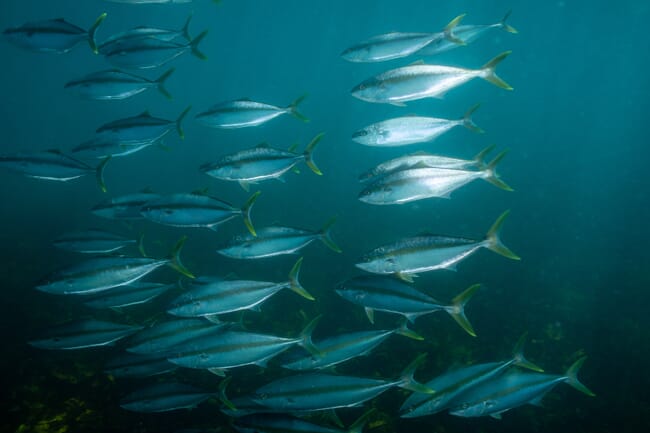
Due to its nutrient and fat profile, fish oil has been a key ingredient in aquafeeds for much of the history of modern aquaculture. The high concentrations of long-chain omega-3 polyunsaturated fatty acids are essential for the growth and health of carnivorous fish. However, the use of wild-caught fish as the source of fish oil has long been characterised as an ecologically unsustainable practice.
Seeking to address the increasing demand for farmed seafood whilst also reducing the ecological impact of production, researchers from South Australia’s Flinders University have published a study in which they assess the use of fish oil substitutes, such as canola and poultry oils, in farmed kingfish production.
“Reducing the use of wild-caught sardines and other small fish to sustain farmed fish - to produce more farmed fish for human consumption - will help maintain our oceans and fishery food chains," says Flinders University associate Professor James Harris, in a press release.
“We can't keep catching loads of small fish to feed to larger fish we are growing, so we are increasingly looking to reduce fish oil in their diets,” Harris added.
The researchers found that both canola and poultry oils could be effective replacements for fish oils in aquafeeds. However, some potentially adverse effects were observed to occur in the livers of the studied kingfish. These impacts highlight the need for further research into kingfish fat metabolism and feed manipulation to achieve an optimal formula, concluded Harris.




